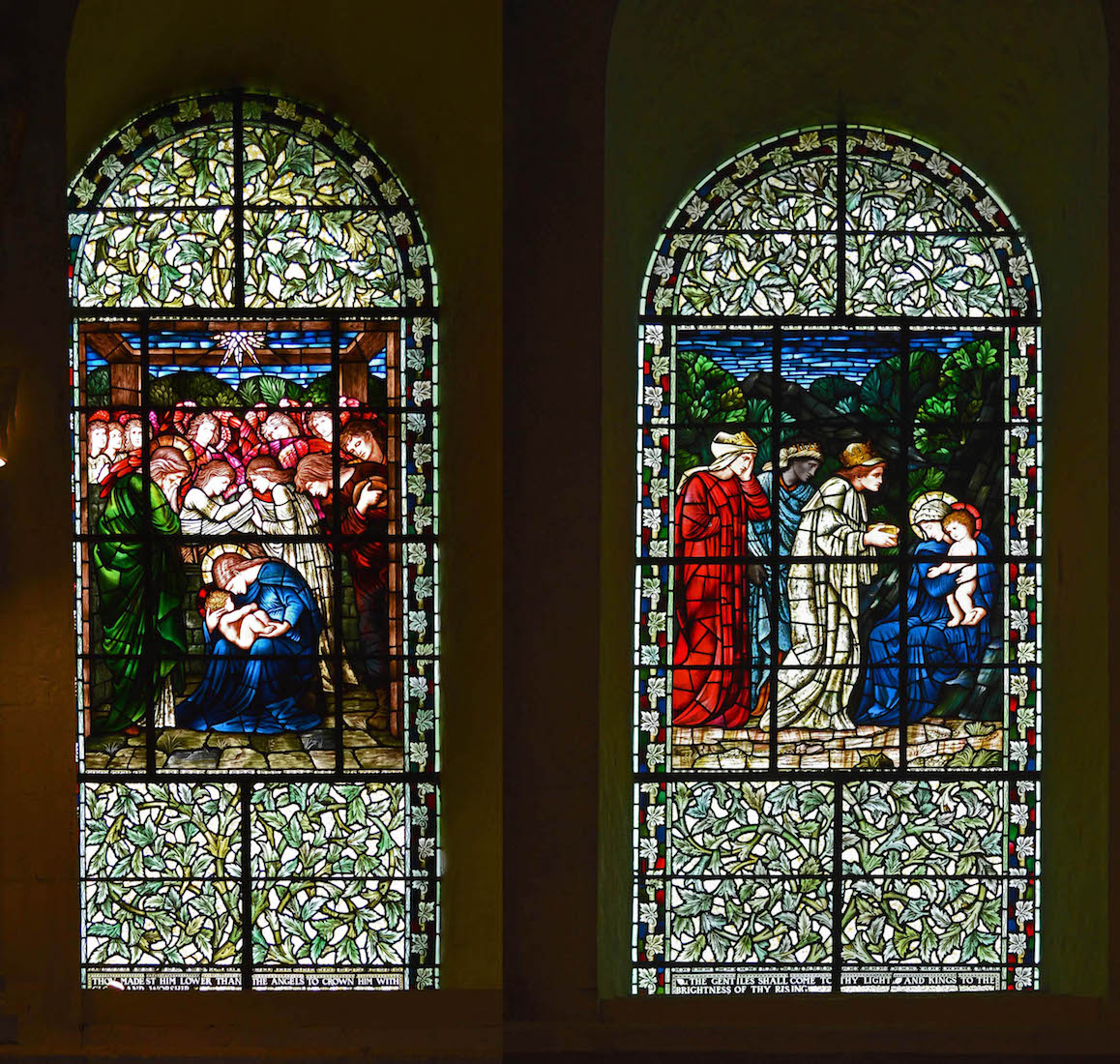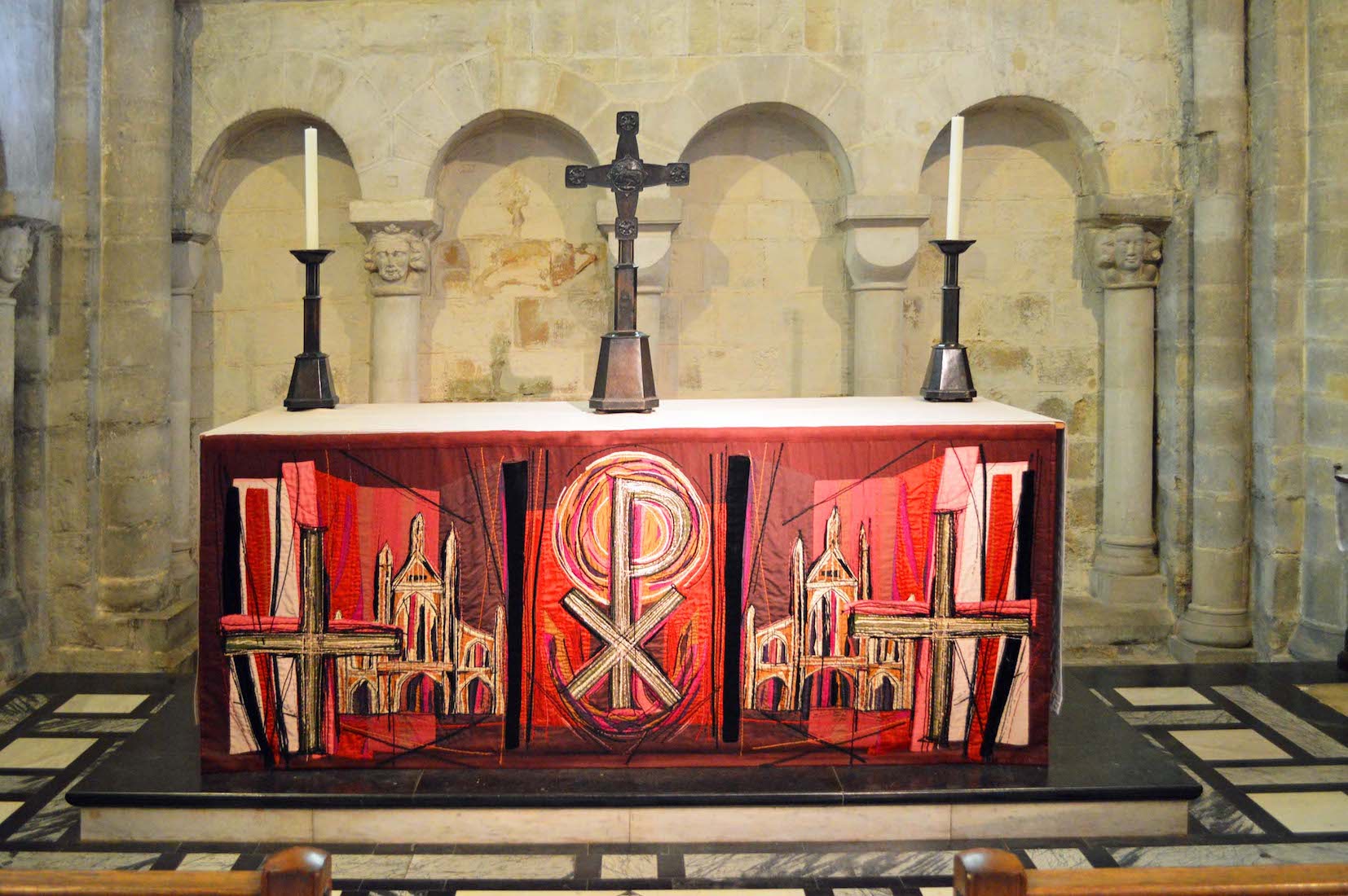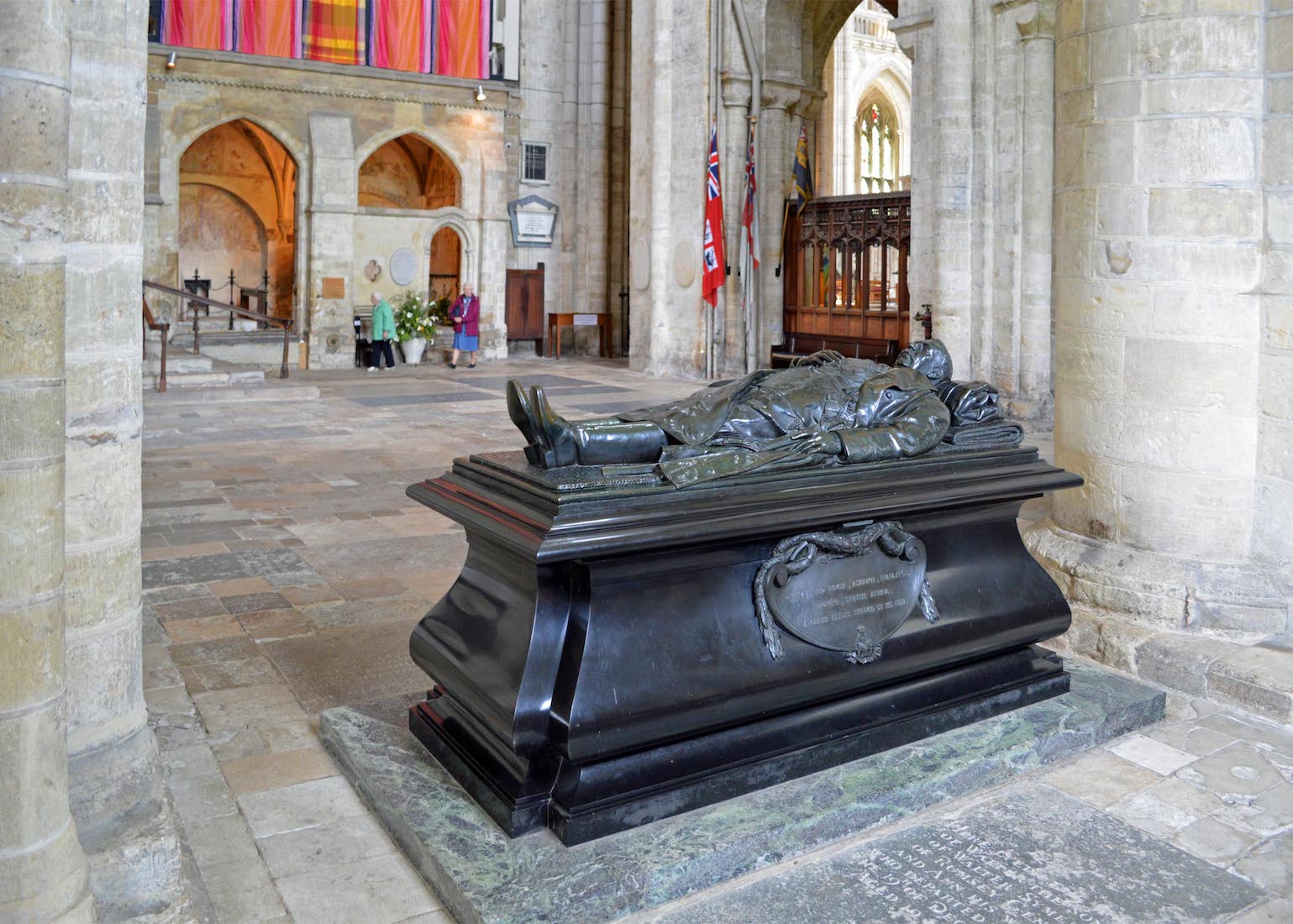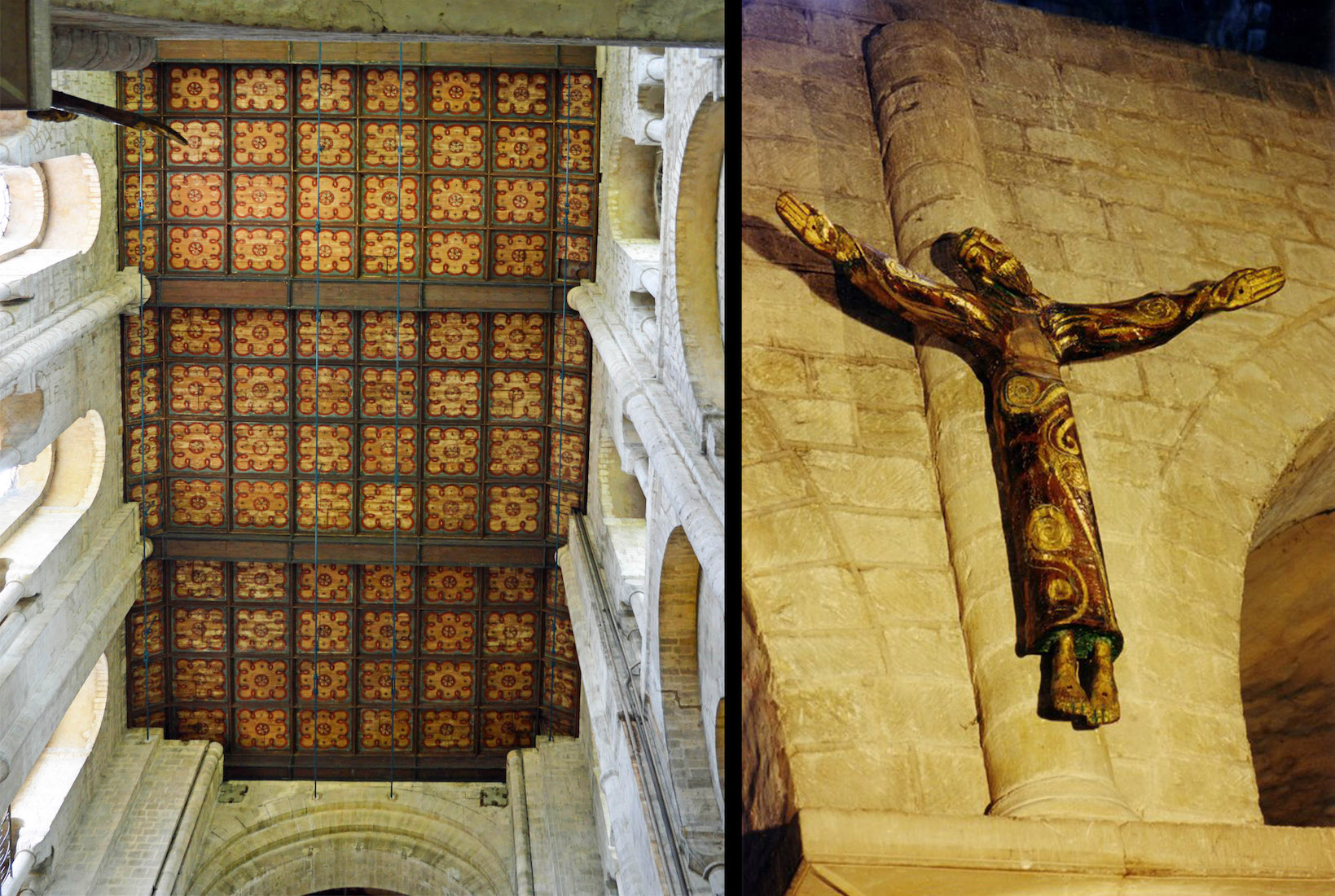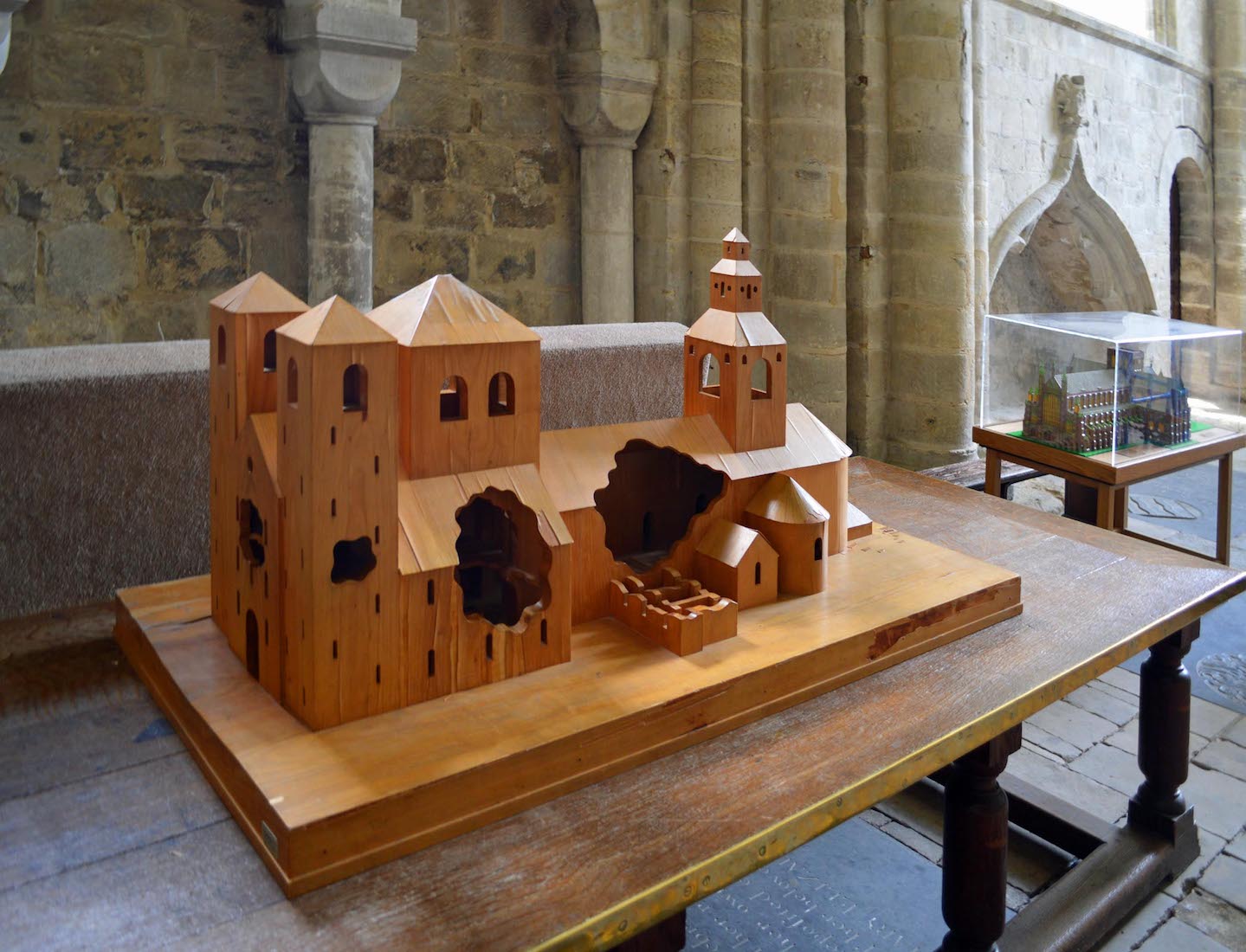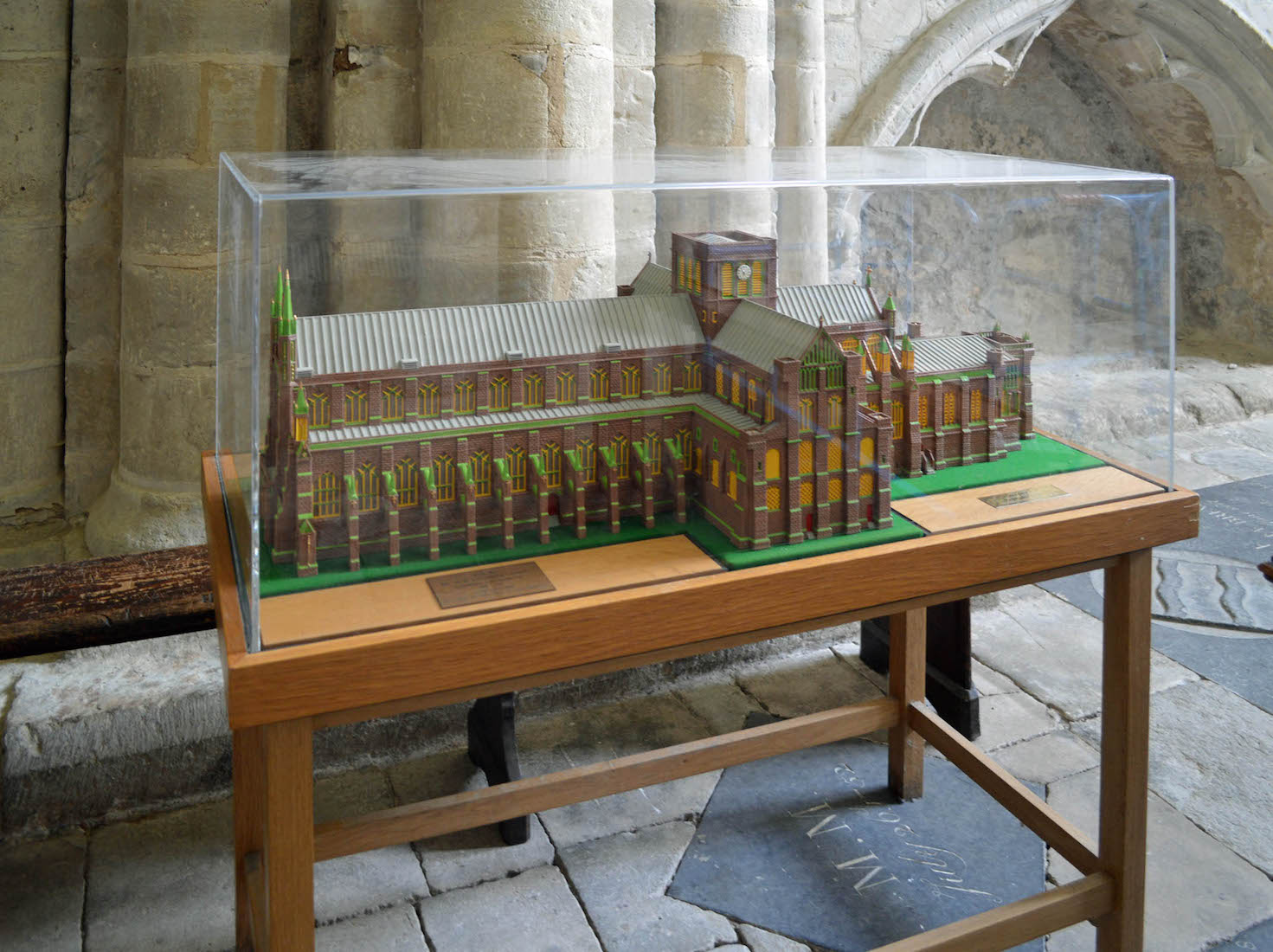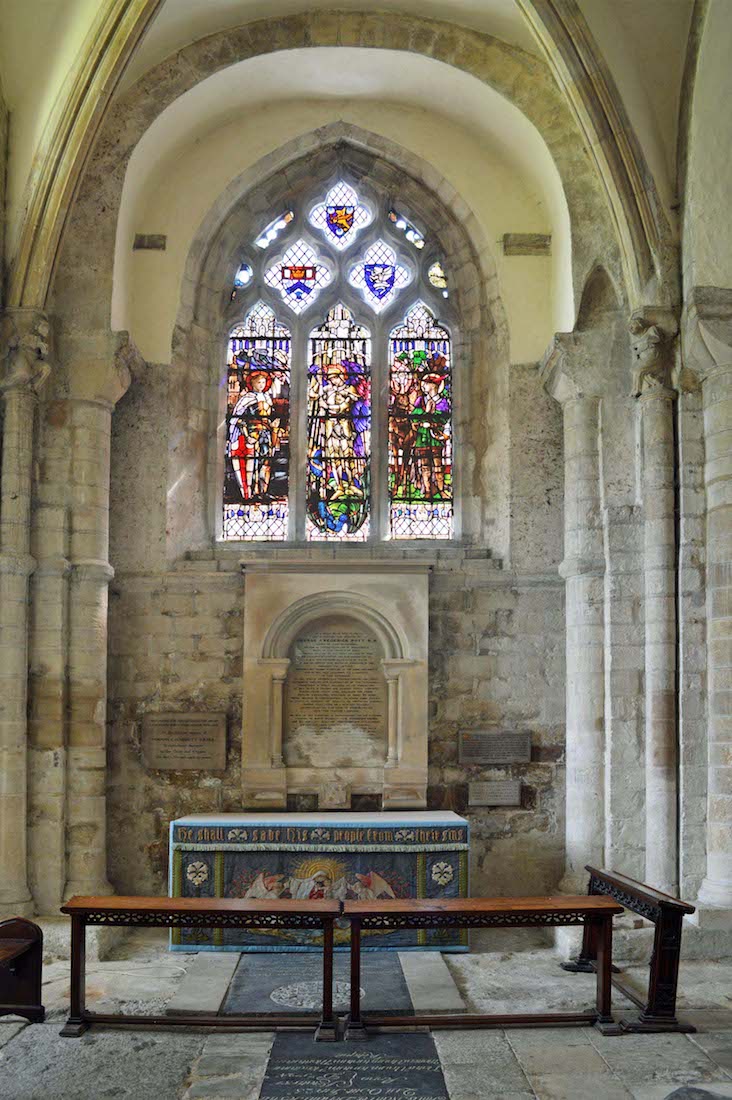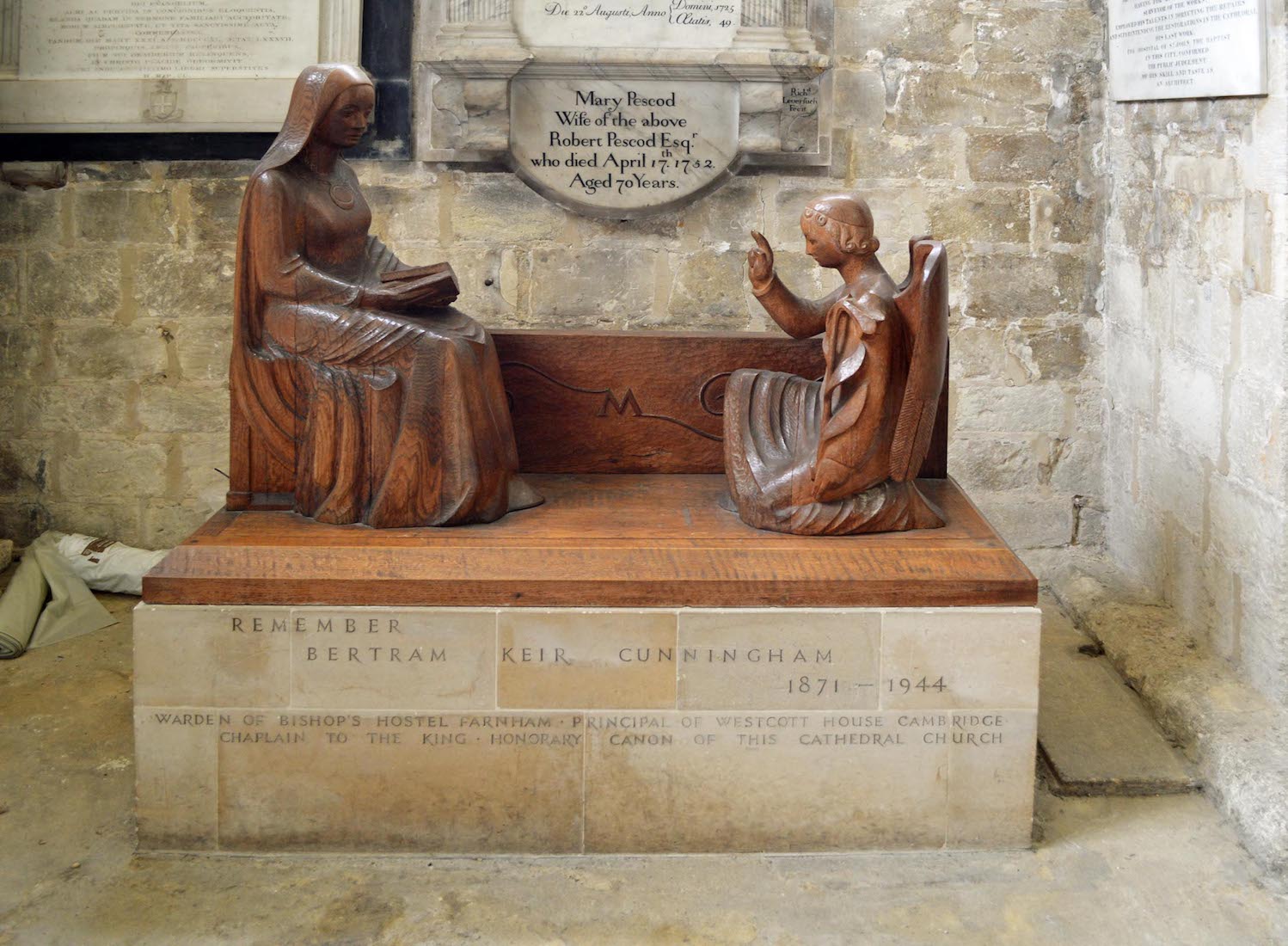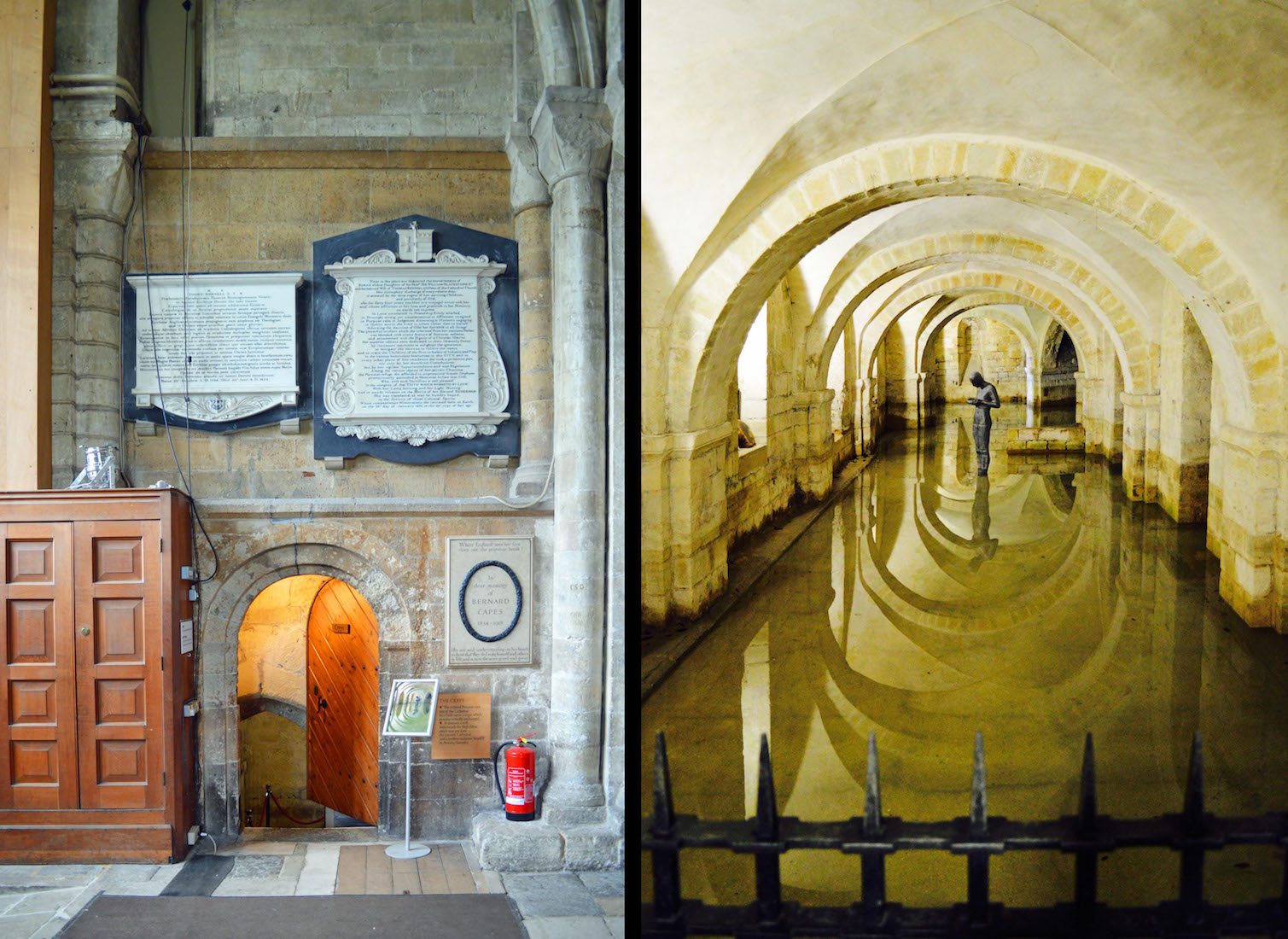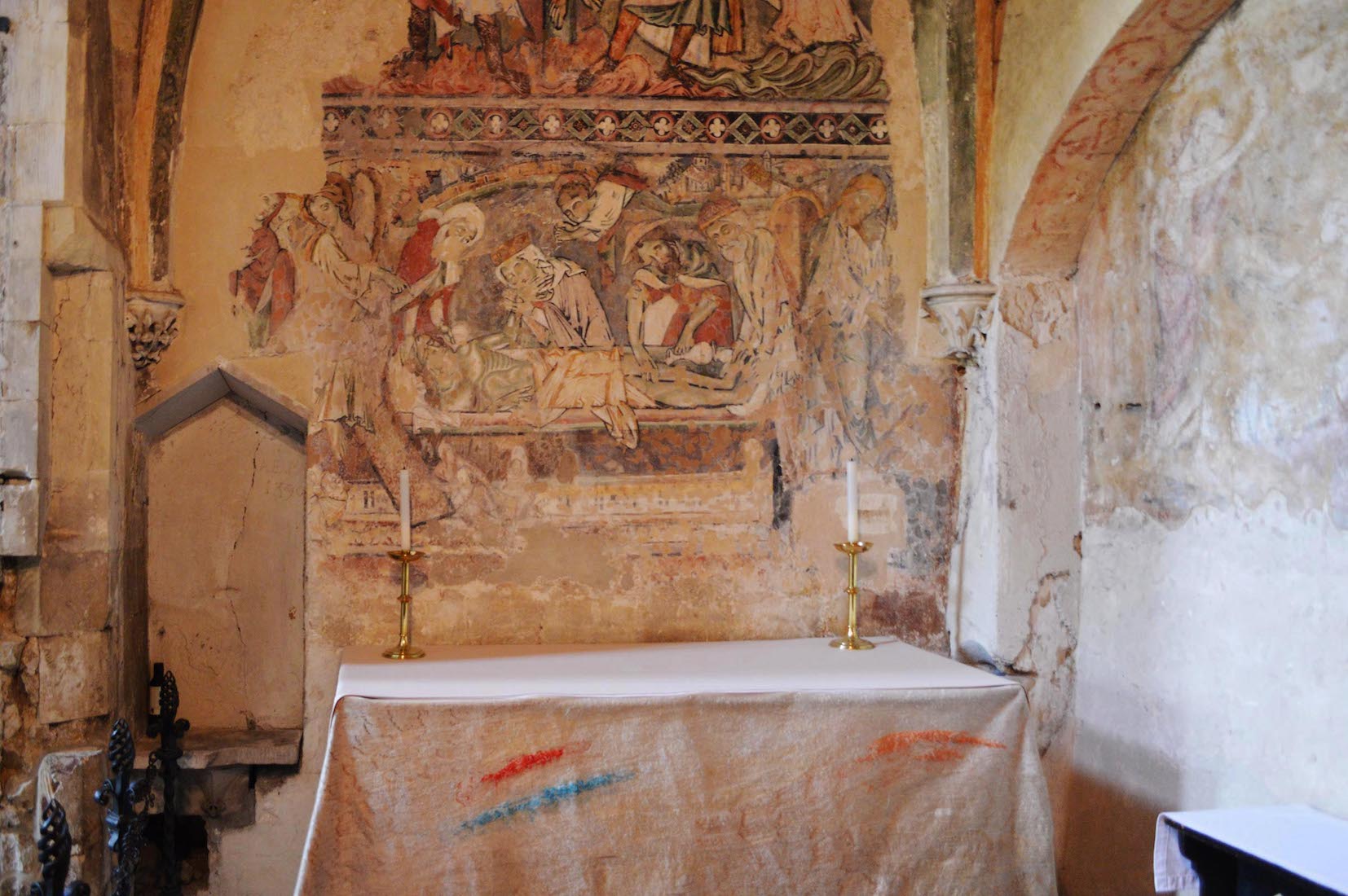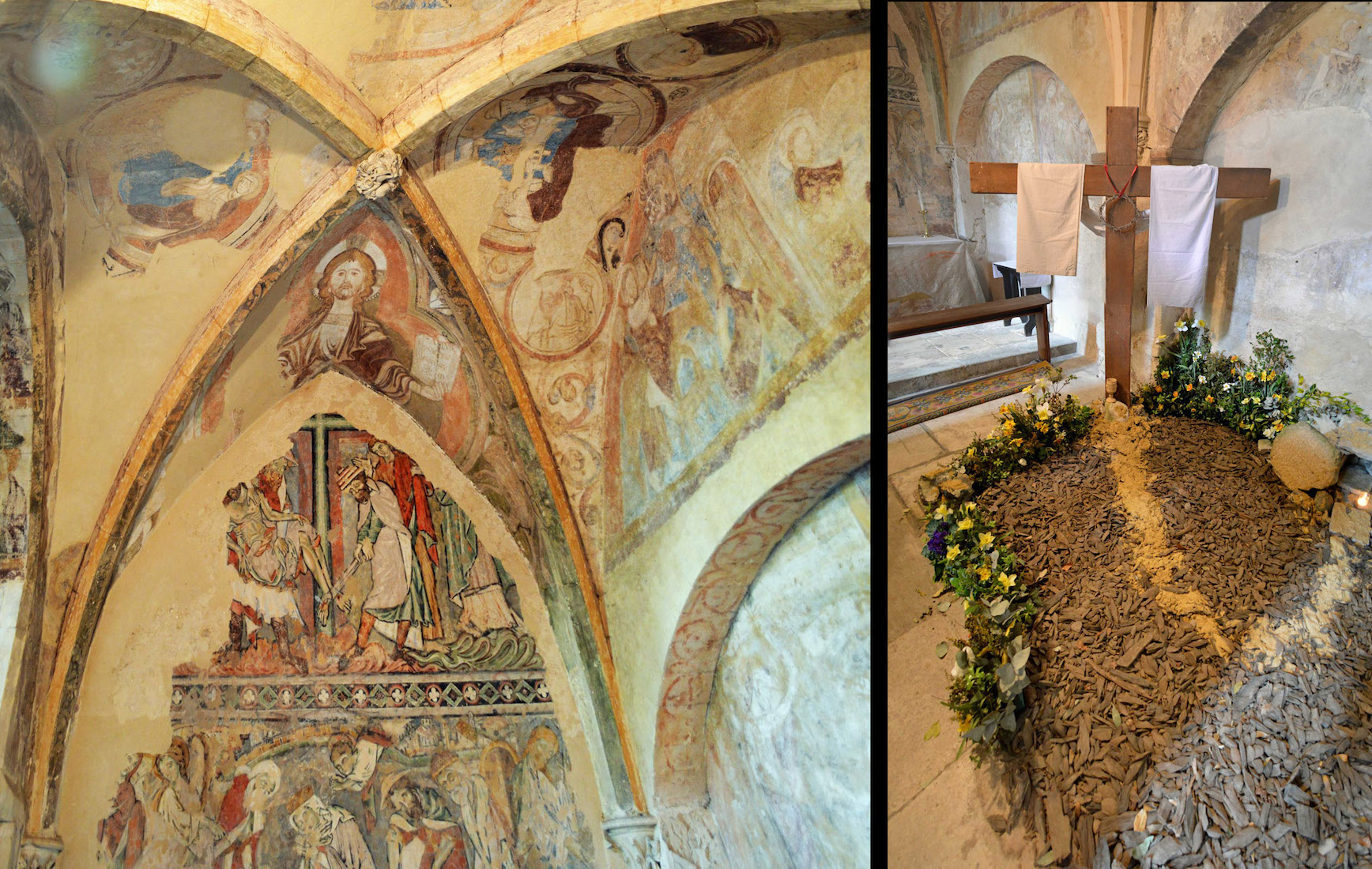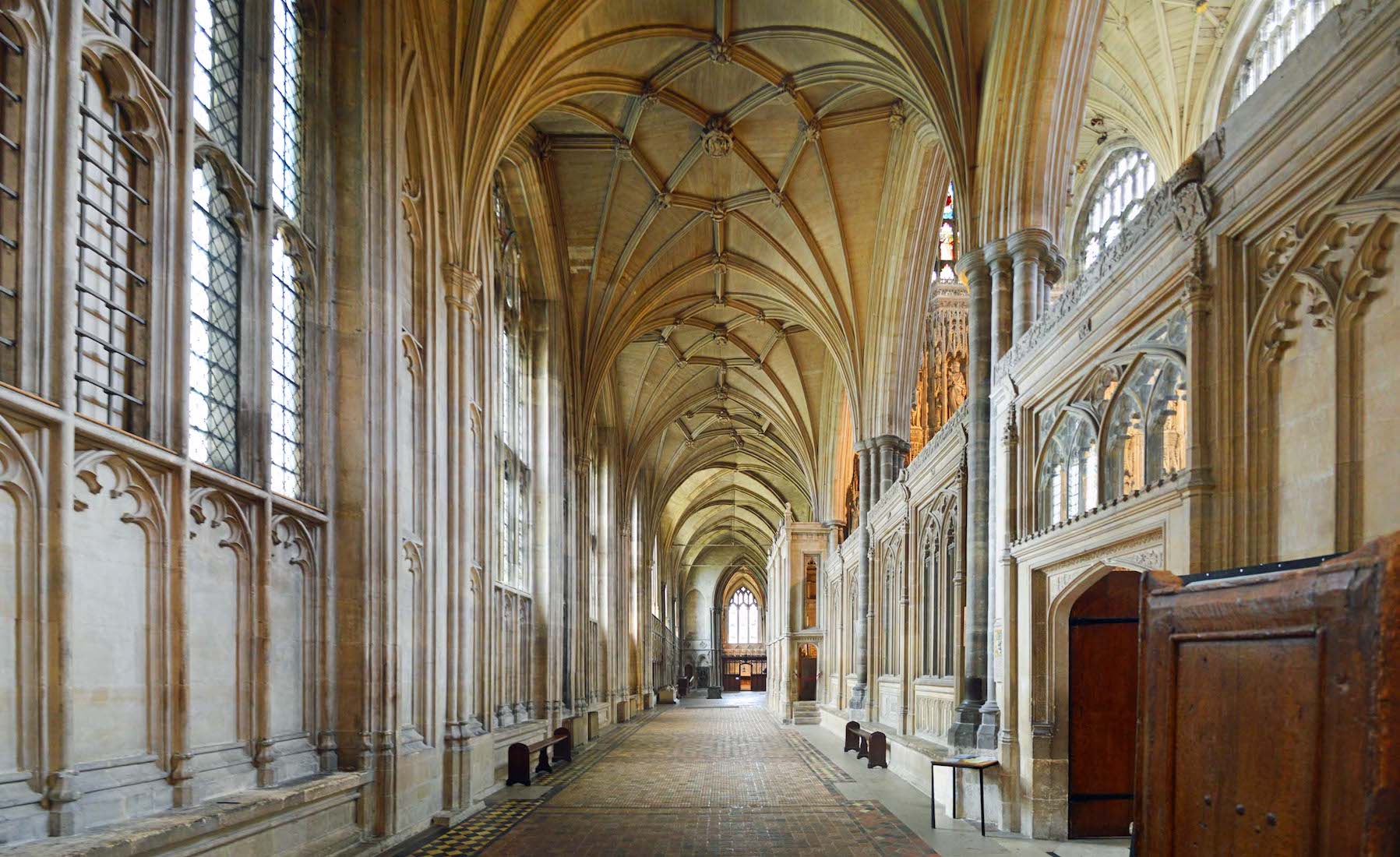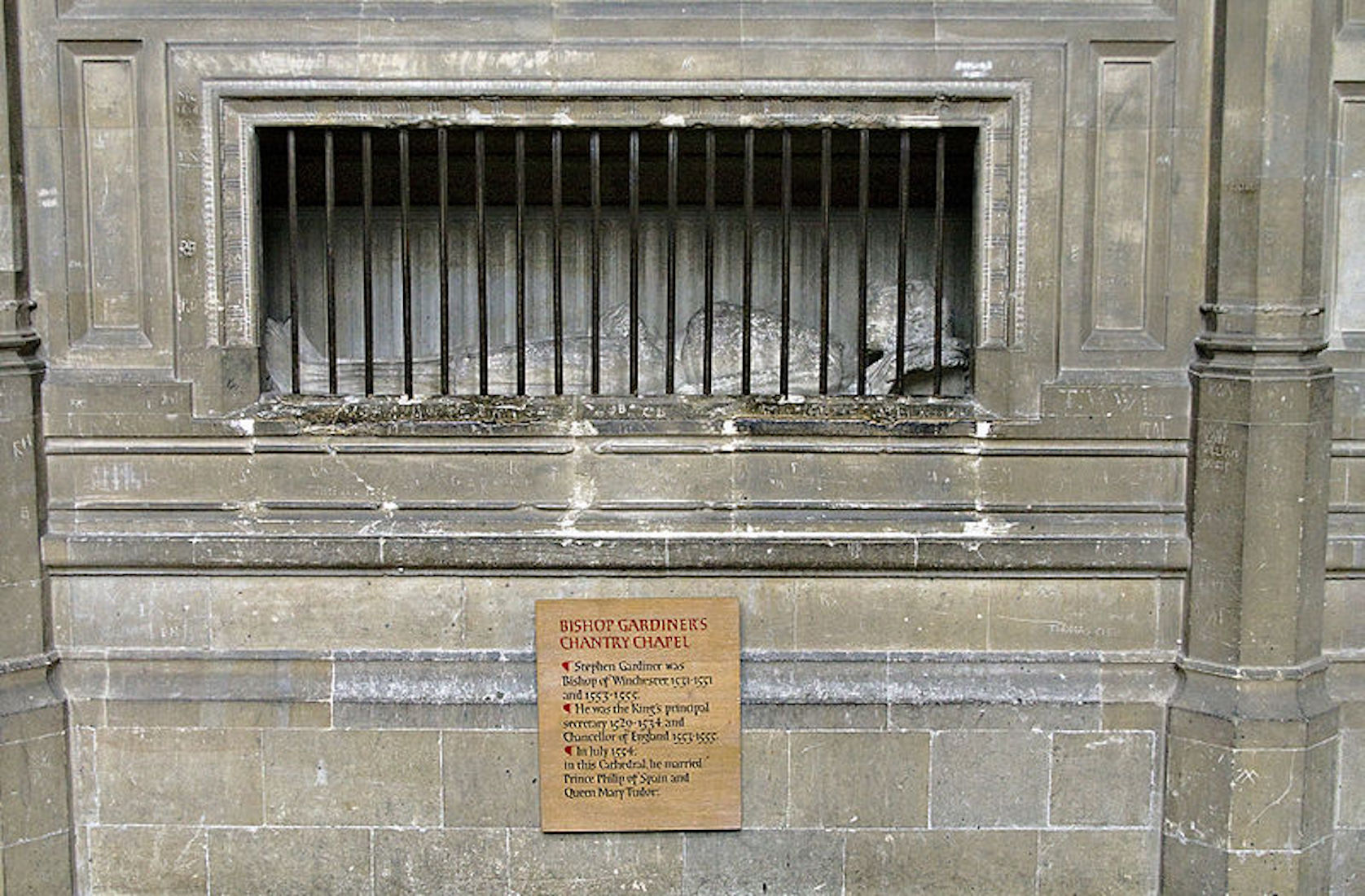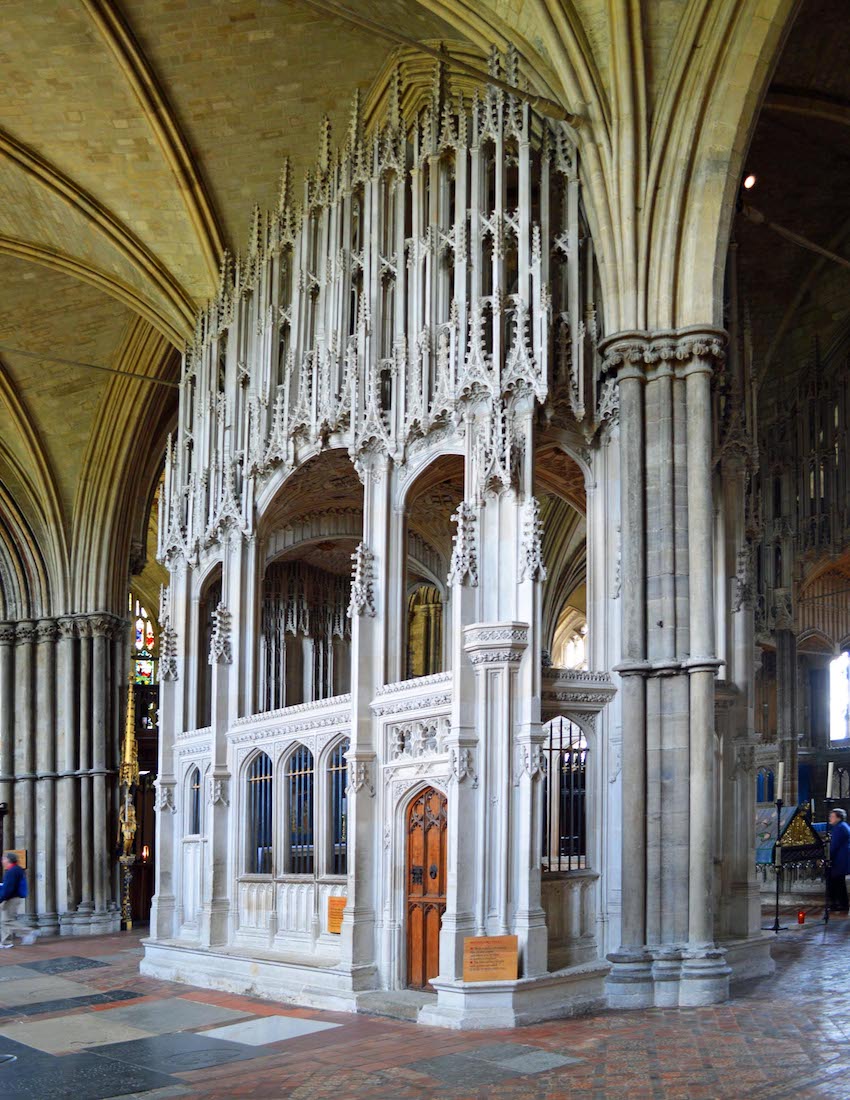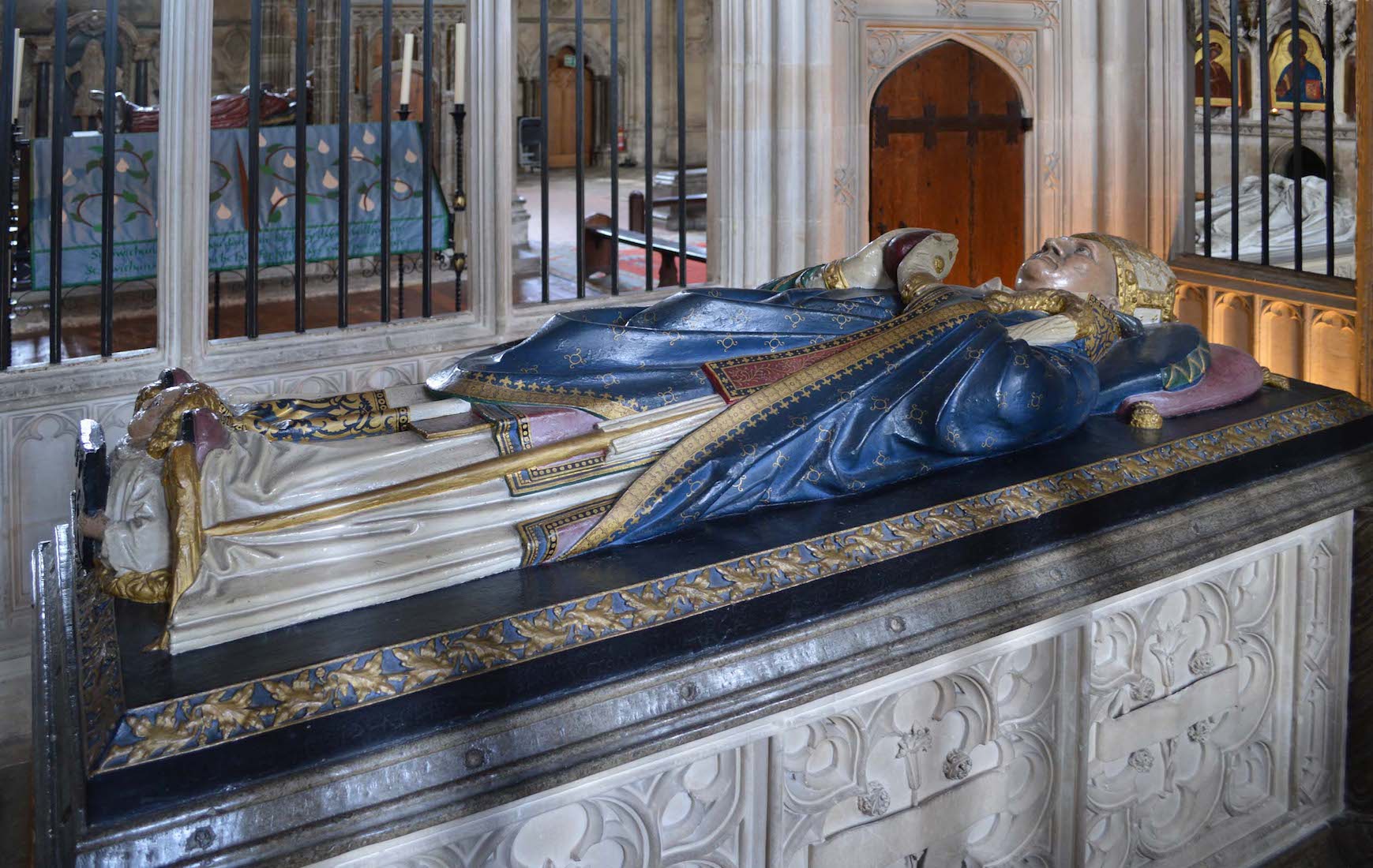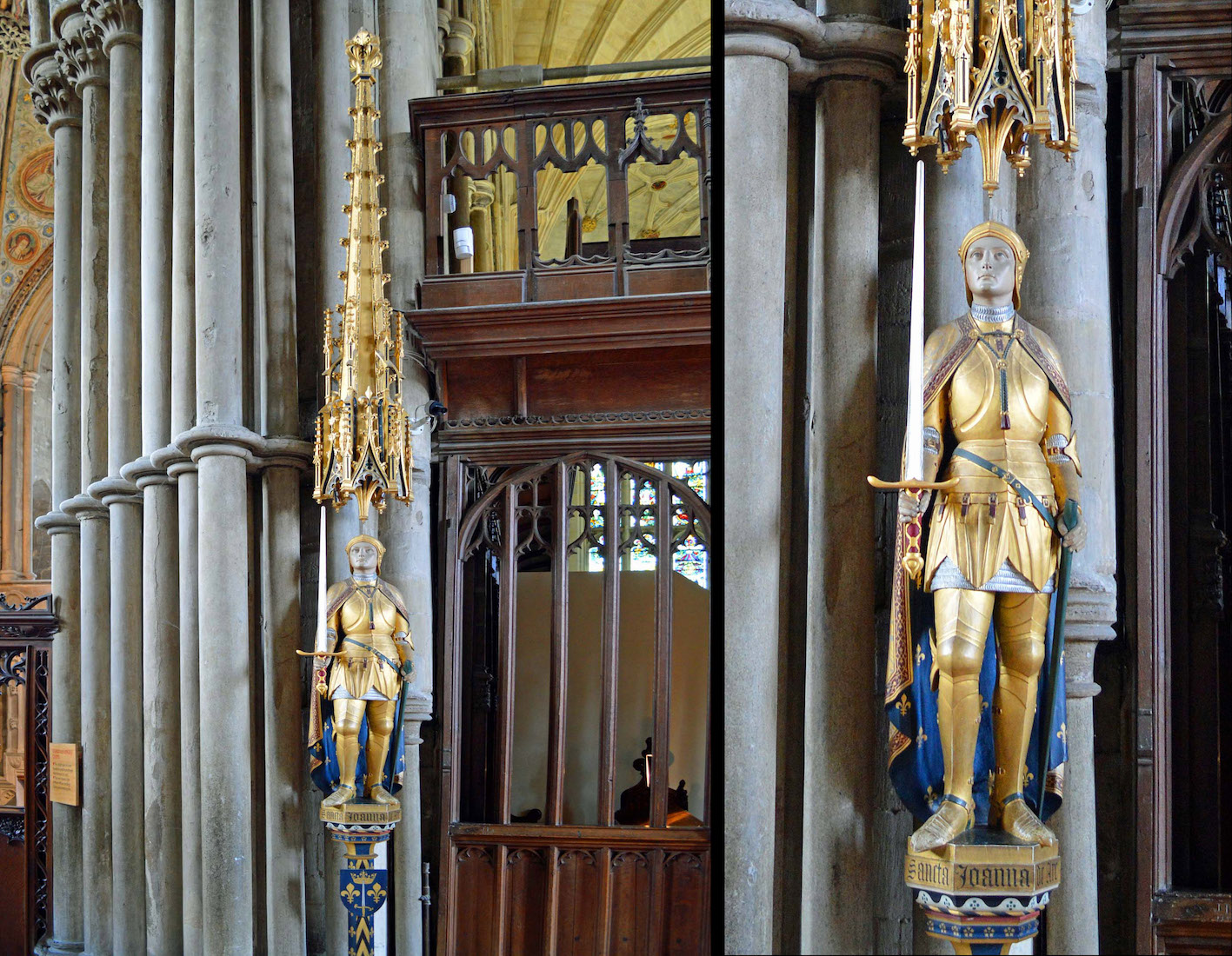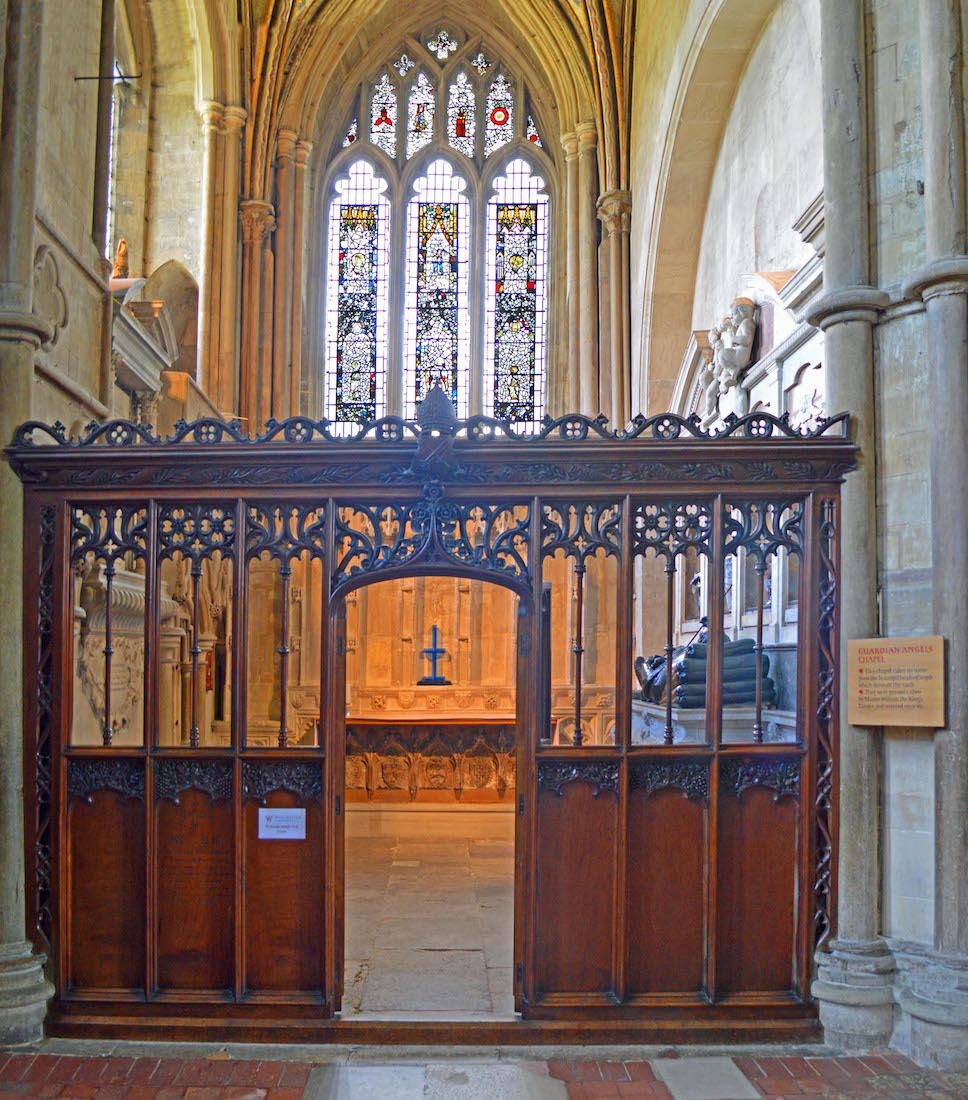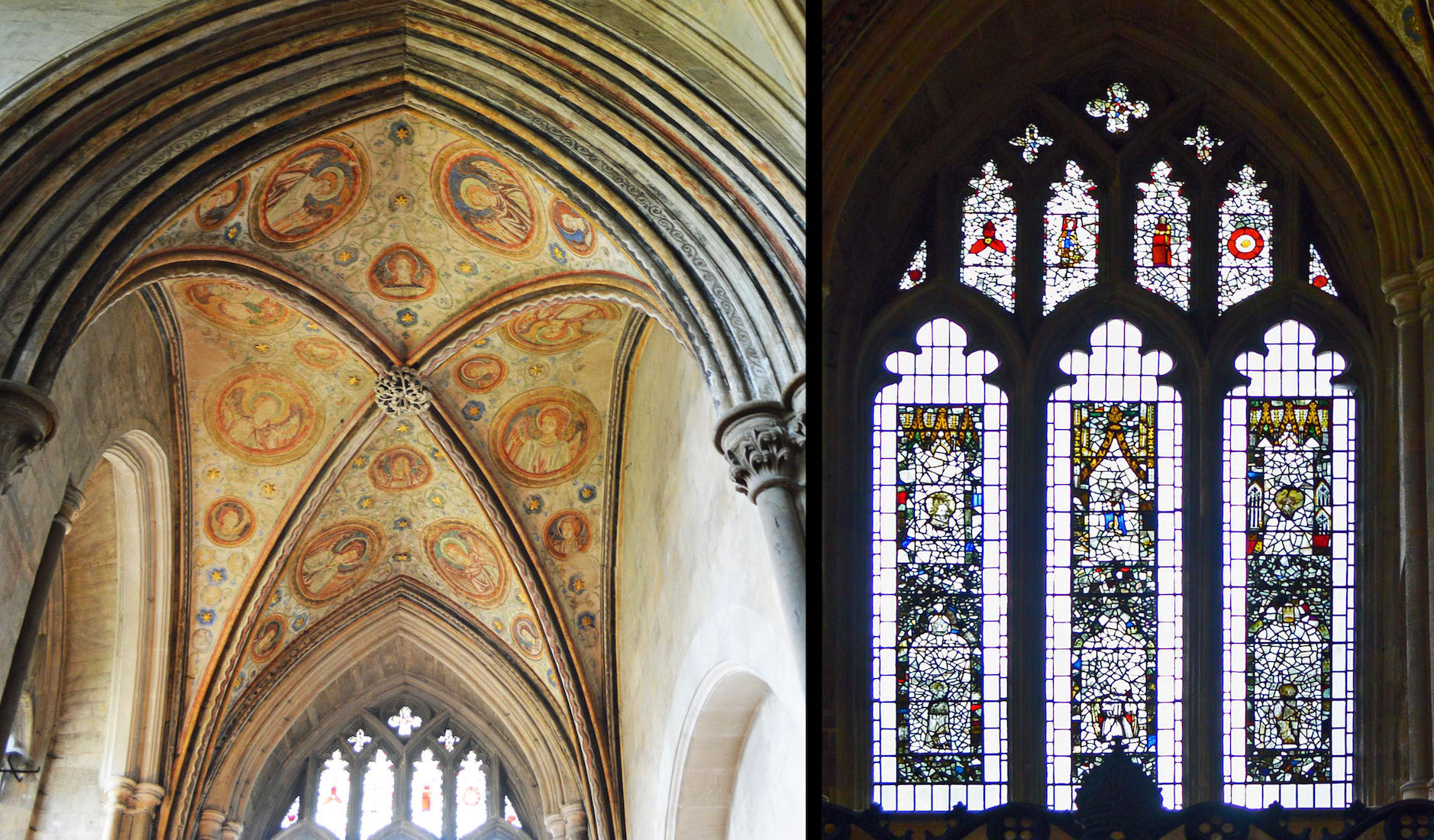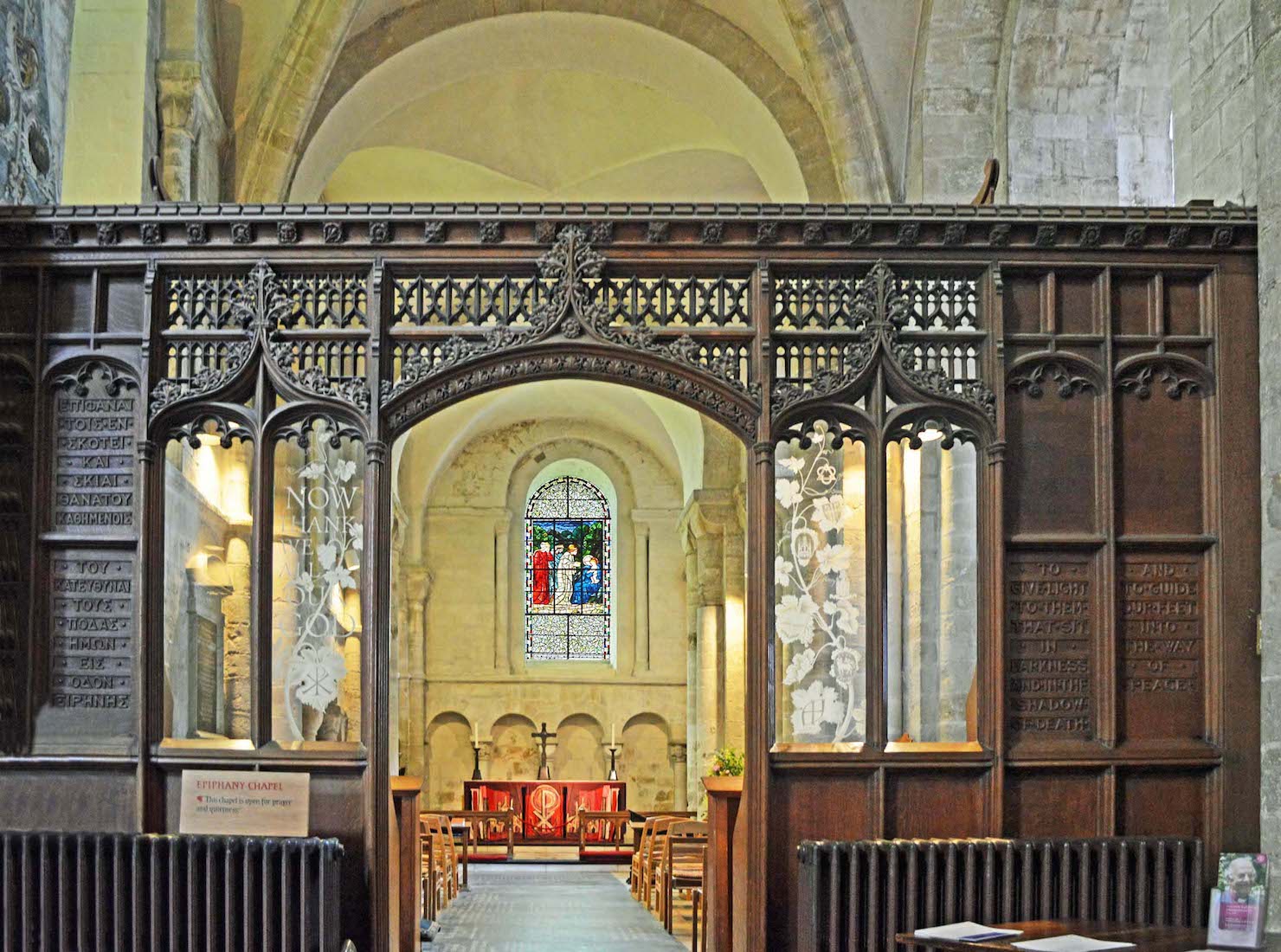
The Epiphany Chapel is located on the West side of the North transept. The Chapel has a series of beautiful Pre-Raphaelite stained glass windows designed by Sir Edward Coley Burne-Jones and made in William Morris's workshop. PLAN
42. CHAPEL WINDOWS 1, 2
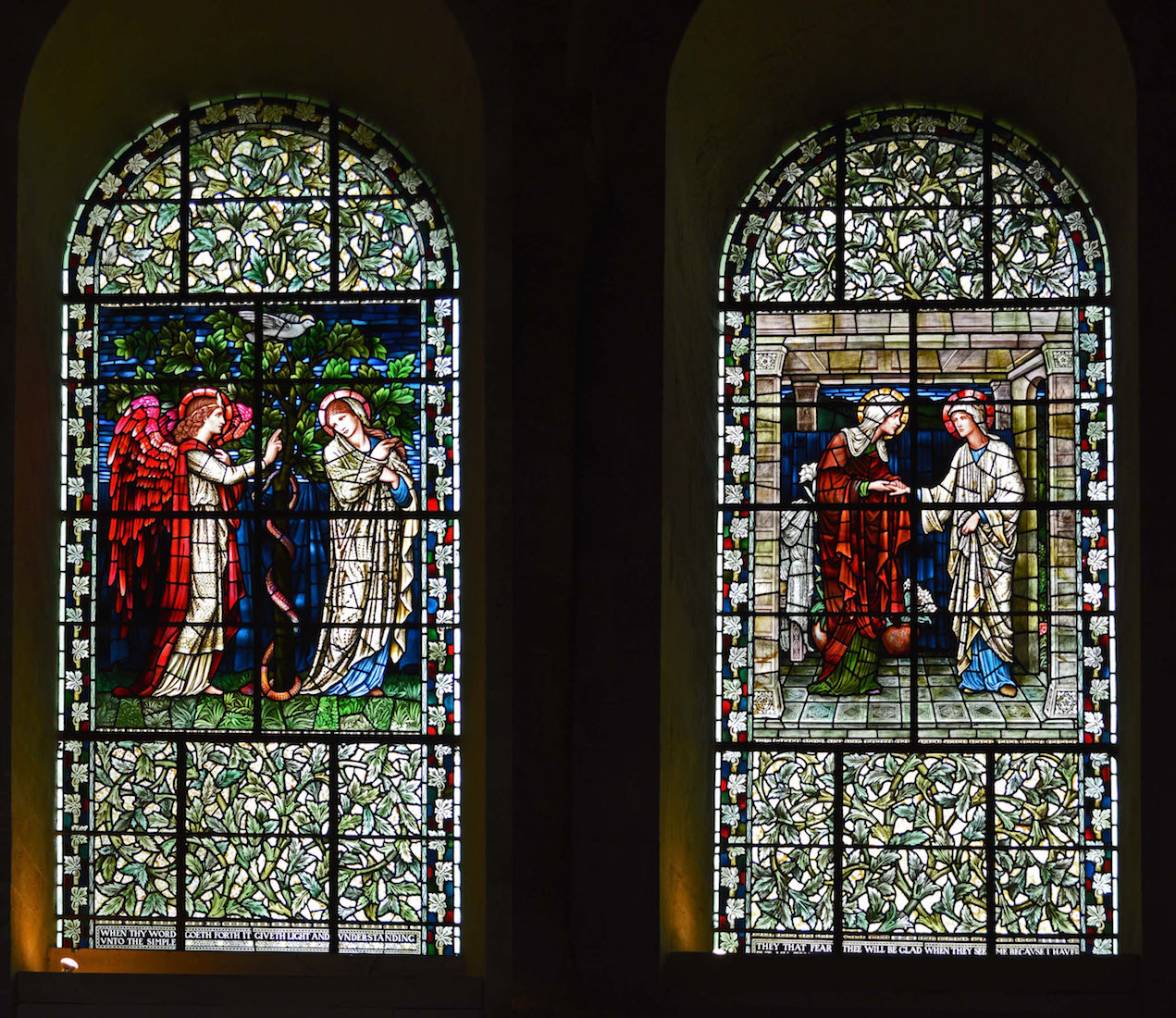
The foliage decoration above and below each pictorial panel is unmistakably William Morris and at least one of the figures bears a striking resemblance to Morris's wife Jane. This first window depicts the Annunciation, where the angel tells Mary of the forthcoming birth of Jesus. The second window depicts the Visitation (of Mary to Elizabeth). On hearing the good news from the angel, Mary visits her cousin Elizabeth who is also with child – John the Baptist, as he will be.
43. CHAPEL WINDOW 3 AND THE EPIPHANY WINDOW
The third window shows the Nativity – the birth of Christ in Bethlehem’s stable. The fourth Chapel window is above the altar. It shows the wise men coming to pay homage to the Infant Jesus. ‘Epiphany’ is a festival in Christianity celebrating the visit of the wise men to the infant Jesus. Epiphany means ‘a showing forth’ — in this case a showing forth of Jesus to the Gentiles.
44. EPIPHANY CHAPEL ALTAR
The chapel altar stands before this window. Th altar has a modern design with the Chi-Rho symbol for Christ at the centre, and Cross and cathedral on either side.
46. TRANSEPT CEILING AND CHRIST FIGURE
The North transept has an attractive ceiling which unfortunately covers the rose window. A modern sculpture of Christ on the Cross (1990) looks down over the transept. [Photograph by sculptor Peter Bell, used with permission.]
47. MODEL CHURCH
The transept contains a model of the old Anglo-Saxon Cathedral.
48. MODEL CATHEDRAL
There is also a model of Winchester Cathedral. I notice a clock face on the central tower of this model, missing in real life!
49. LITTLE CHAPEL
In the East wall of the North transept there are several shallow recesses – one incorporating this little chapel.
50. THE ANNUNCIATION
Nearby is a lovely carved scene of the Annunciation by Alan Durst, dating from the 1950s.
51. DOWN TO THE CRYPT
Then in the corner of the transept is a mysterious doorway, opening to steps leading down to the crypt. This superb low-vaulted stone crypt, which floods in rainy months, dates from the 11th century, the earliest phase of building the Cathedral. Here stands Antony Gormley’s curious life-size sculpture of a solitary man, Sound II, sometimes, as here, up to its ankles in water. The man is contemplating water held in his cupped hands.
52. CHAPEL OF HOLY SEPULCHRE
In the South wall of the North transept sits the Chapel of the Holy Sepulchre. It dates from the 12th century as shown by its surprisingly colourful wall-paintings of about 1170. The finest works of this period in the country, they were probably executed under the patronage of Bishop Henry of Blois.
53. CHAPEL WALL PAINTINGS AND GARDEN SCENE
This early work was only found in 1963, during conservation work beneath crusader-influenced paintings of fifty years later! The scenes depicted in this Chapel include the Entombment, the Saints Mary at the Sepulchre, the Harrowing of Hell, the Entry into Jerusalem, and the Raising of Lazarus. The Chapel contains a replica Calvary Garden scene.
54. NORTH CHOIR AISLE
Climbing several steps from the North transept, we come to the long expanse of the the North choir aisle. The windows on the left are plain, but two of the Cathedral’s seven chantries are found on the right.
55. BISHOP GARDINER’S CHANTRY
The first is Bishop Gardiner’s Chantry. Stephen Gardiner (c. 1483 – 1555) was an English Roman Catholic bishop and politician during the English Reformation period who served as Lord Chancellor during the reign of Queen Mary I of England.
56. BISHOP WAYNEFLETE’S CHANTRY
Further along is Bishop Wayneflete’s Chantry. He was Bishop of Winchester from 1447 to 1486, and Lord Chancellor of England from 1456 to 1460.
57. BISHOP WAYNEFLETE’S EFFIGY
The resplendent effigy of Bishop Wayneflete was repainted in 1932.
58. JOAN OF ARC
At the end of the North choir aisle is this statue of Joan of Arc. The statue was originally placed opposite the Chancery Chapel of Cardinal Beaufort, Bishop of Winchester who helped condemn her to death at the stake in 1431. Joan of Arc (c. 1412 – 1431), nicknamed ‘The Maid of Orléans’, is considered a heroine of France for her role during the Lancastrian phase of the Hundred Years’ War. She was canonized as a Roman Catholic saint.
59. GUARDIAN ANGELS’ CHAPEL
To the left of the statue of Joan of Arc is the Guardian Angels’ Chapel. The chapel has an unusual window and a bronze of Richard Weston.
60. CHAPEL VAULTING AND WINDOW
The vault of the chapel has lively medieval angel heads dating from 1240. These were painted by Master William, the King’s Painter, and restored in 1959-60. I can find no information on the window in the Guardian Angels’ Chapel, but the panels appear to have been reconstructed from glass fragments.


